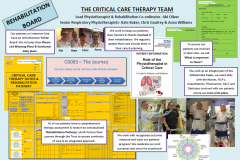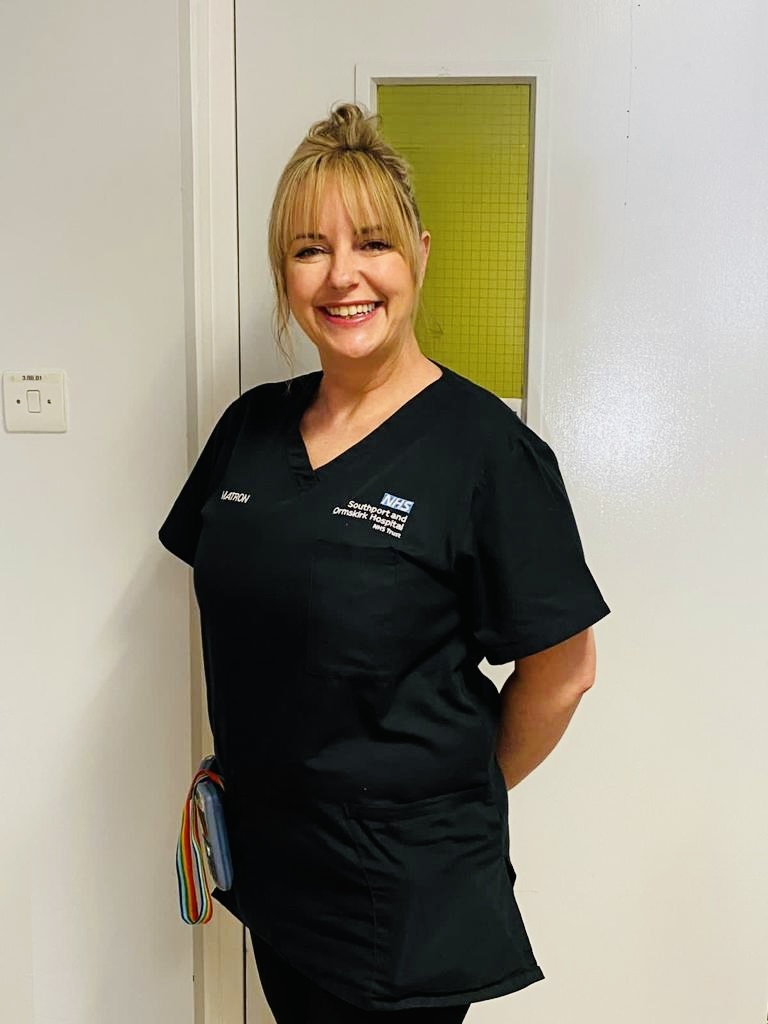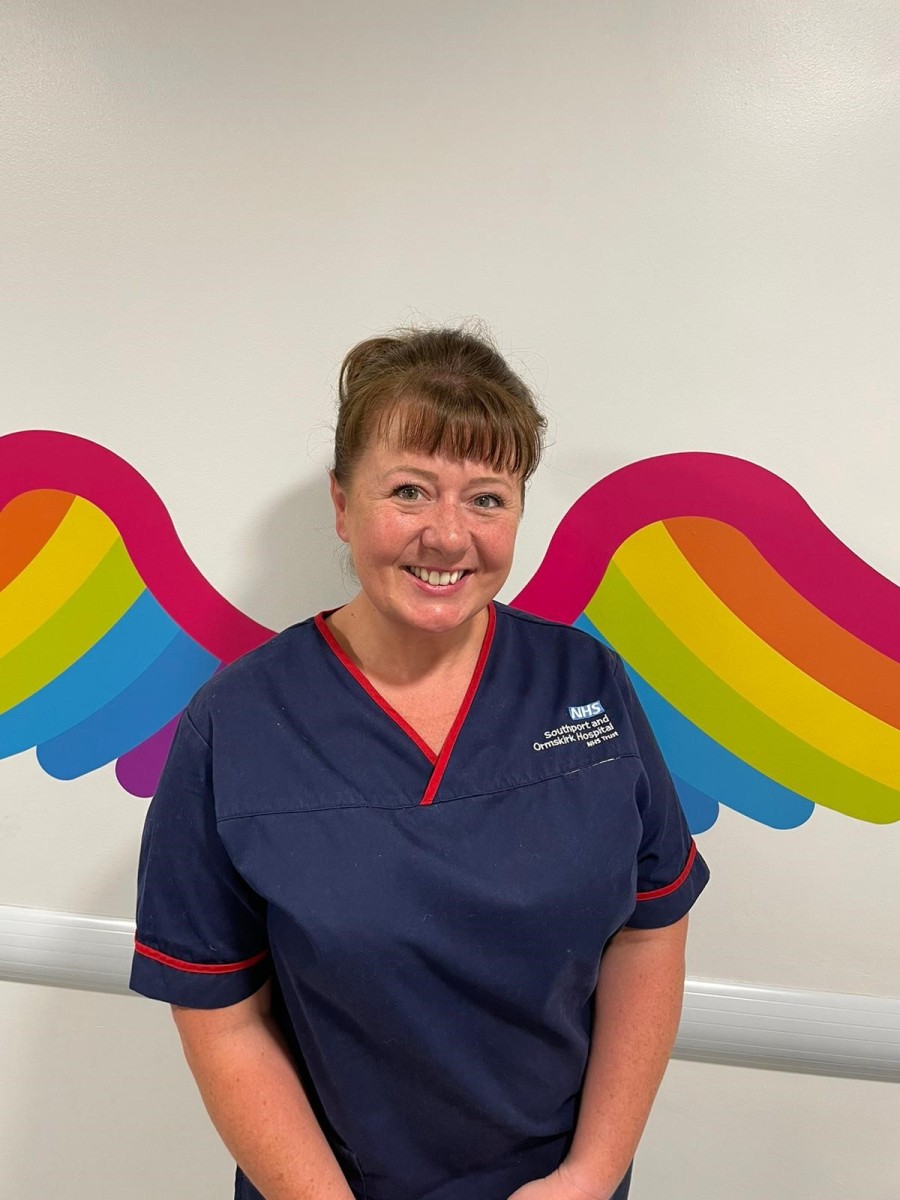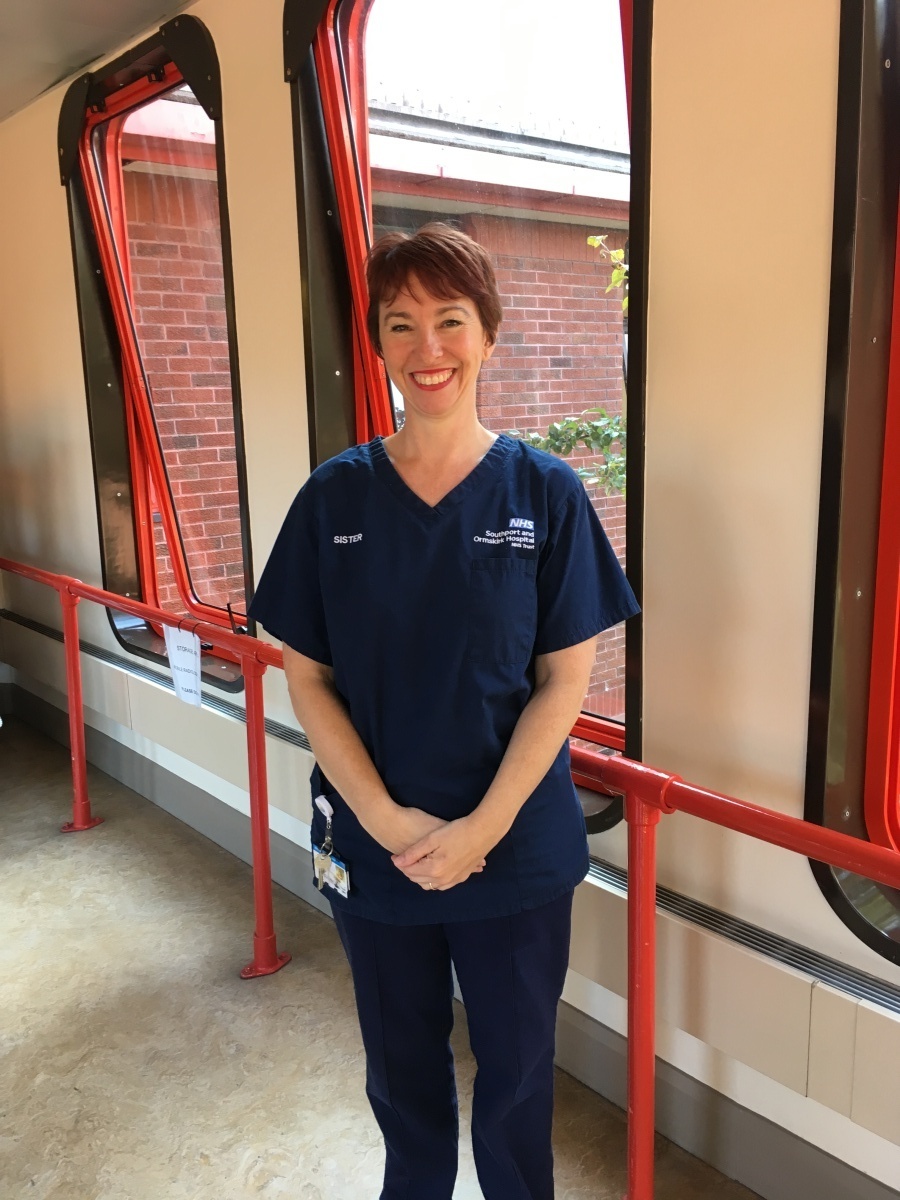Everyone will be wearing identification as it may be difficult to know if someone is a doctor, nurse, therapist or other member of the ICU team. Everyone on the unit should introduce themselves to you but please ask if you are unsure.

Green- consultant anaesthetist
Burgundy- pharmacy
Royal blue with white piping – assistant practitioner
Pale blue – health care assistant
Pale green- housekeepers
Navy blue – sister
Continuity of care
Every effort is made to ensure patients receive a high quality of care from their nursing team. The unit consists of intensive care and high dependency beds. In intensive care one nurse cares for one patient, whereas in high dependency one nurse cares for two patients.
Medical team

On the unit we have ICU consultants who provide cover for the unit 24/7. Each consultant is on a rota to cover Monday–Friday. Although you may be introduced to different consultants they will be given an in-depth handover so they are aware of your relative or friend. The consultant is supported by a team of specialist registrars.
Nursing team
Nursing care is provided by nurses. When your relative or friend is admitted to the unit, they will be cared for by a nursing team. This approach allows us to get to know the patient and you better. It also helps you to get to know the nurses caring for your relative or friend.
Nursing team roles
Physiotherapists
(Click for larger image)
There is a physiotherapy service for all patients on the ICU. A team of physiotherapists will assess each patient on a daily basis to identify any areas that may benefit from treatment.
This may include:
Planning and carrying out the rehabilitation of the patient . This starts very early in their stay as we wish to prevent any complications and reduce the length of stay in critical care.
- Listening to the chest and clearing the lungs.
- Maintaining a range of limb movements and mobility in bed, such as stretches and splinting.
- Strengthening exercises and facilitating mobility such as transferring to a chair and aiding walking.
It may come as a surprise to some people that while patients are so unwell they require physiotherapy—however it is at this time that it is so important for patients to be stimulated, as this plays a vital part in the recovery process. Not every patient will require the same amount of input—some patients will just have a daily review, whereas others may receive treatment three times a day.
It is the role of the physiotherapist to determine how much input is appropriate for each patient. Sometimes it is useful to get relatives to encourage and help carry out exercises with the patient. The same physiotherapist working in ICU will initially continue to treat patients when they move to the ward, but as the patient improves, other teams may be more involved in the ongoing rehabilitation. If you have any questions regarding the physiotherapy service for patients on ICU, please speak to the nurse in charge who will contact the physiotherapy team.
Visit the Therapy Team page for further information.
Useful documents:
- COVID-19 ICU Rehabilitation Leaflet
- The role of the ICU physiotherapist
- My critical care stay
- The critical care journey
- CPAx
- CPAx Scores
- Visual Aid Rehab Board
- Trust rehabilitation standards
Local Service Improvement Lead
Tanya’s role is to support the delivery and development of improvements in critical care.
- Implementing national, network and locally agreed standards and quality indicators.
- Auditing practice against national, network and locally agreed standards.
- To ensure that Cheshire & Merseyside Critical Care (CMCCN) and trust objectives are achieved.
- To network with other Critical Care Units to share best practice.
- To facilitate further development through research.
- Analysis of findings, action planning and dissemination of projects and reports to CMCCN and local team.
This benefits patients and relatives by:
- Providing parity to service delivery across Cheshire and Merseyside.
- Ensuring the consistency and delivery of high quality standards across the network.
- Improving service delivery of quality care and treatment.
- Improving patient centred individualised care and patient experience.
Dietitian

A registered dietitian is a clinical expert in providing evidence based nutritional management in the critically ill.
The dietitian works as an integral part of the critical care team planning specific nutritional interventions to minimise any deterioration in a patients’ nutritional status. Critically ill patients are likely to require parenteral, enteral or oral nutrition support to meet their nutritional needs. Maintaining good nutrition is important for successful rehabilitation during and after their critical care stay.
The Dietitian will assess nutritional requirements to formulate individualised nutritional therapies for patients, monitoring changing nutritional and metabolic needs throughout their critical care stay. They provide advice to patients and relatives relating to poor appetite, taste changes, specific dietary restrictions and muscle wasting as well as supporting seamless care between the critical care unit, the ward and home.
Parent Team
This is the medical or surgical team that the patient will have been admitted under. They will perform regular reviews and will take over patient management on return to ward.
Pharmacist

In ICU patients receive a lot of drugs. The role of the pharmacist is to ensure patients are given appropriate medicines, to make sure the unit has an adequate supply, and to answer any questions staff has relating to medications.
Radiographer
The radiographer takes images of the patient’s chest using an X-ray machine, to check either the patient’s lungs or the placement of specialised lines.
Speech & Language Therapist

The role of the Speech & Language Therapist in intensive care is to assess and treat eating and swallowing problems that critically ill patients may have and assist with communication.
Chaplains
 Illness and time in hospital can raise a lot of issues for patients and those close to them. The Chaplaincy and Spiritual Care Service offers support to anyone who would find it helpful.
Illness and time in hospital can raise a lot of issues for patients and those close to them. The Chaplaincy and Spiritual Care Service offers support to anyone who would find it helpful.
We offer spiritual, religious and pastoral support to all people in all circumstances.
We are not just for religious people. Our person centered approach aims to offer anything from a listening ear and general support to appropriate religious prayers and services.
It is important that spiritual needs are recognized and addressed for all patients and those close to them. Many health care professionals have been trained to recognize these needs. Chaplains have particular skills in offering support and advice to patients and those important to them. This may include informal or formal prayers or simply a supportive, guiding presence.
For life changing events or significant distress, the Chaplaincy and Spiritual Care Service offers a full out of hours On Call Service. This is provided either by the full time Hospital Chaplains, or another experienced on call chaplain. The On Call Service can be contacted directly by ward staff or via the hospital switchboard. For Roman Catholic patients there is a priest on call at all times, contactable via the hospital switchboard.
The chaplaincy and spiritual care service has contacts with all the major faiths and church denominations.
- Lead hospital chaplain – Rev Martin Abrams
- Hospital chaplain – Rev Jan Fraser
- Roman Catholic lay chaplain – Maria Parker
Housekeeping

We have a large team of housekeepers who ensure that the unit is kept clean and tidy at all times.
Critical Care Outreach Team
This is a group of specialised nurses who are trained in critical care and provide a link between patients on the ward and the Intensive Care Unit.














